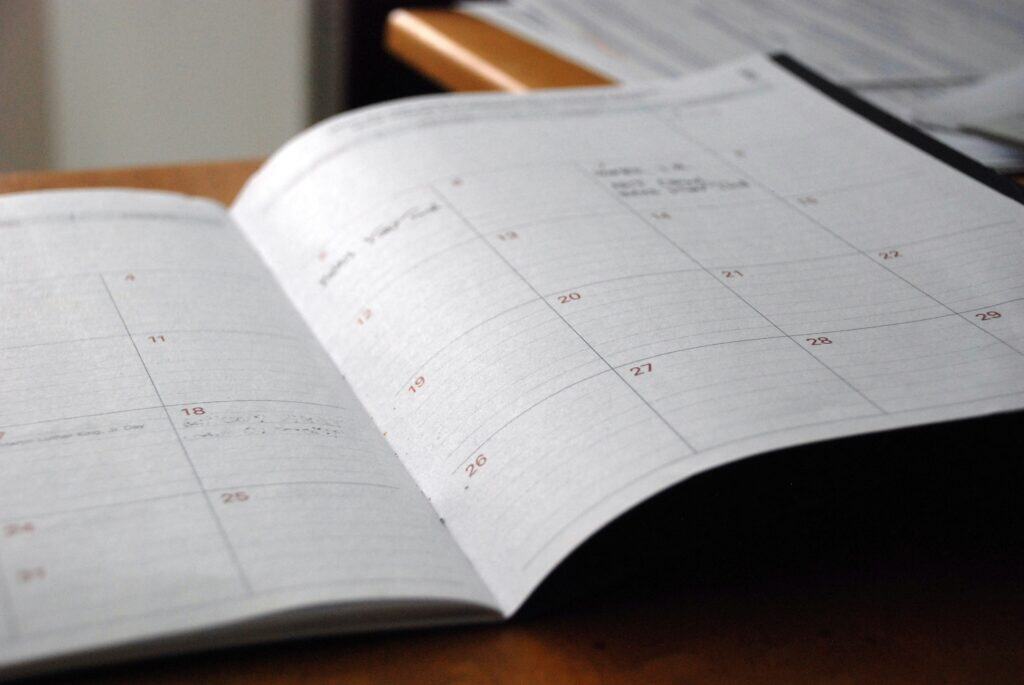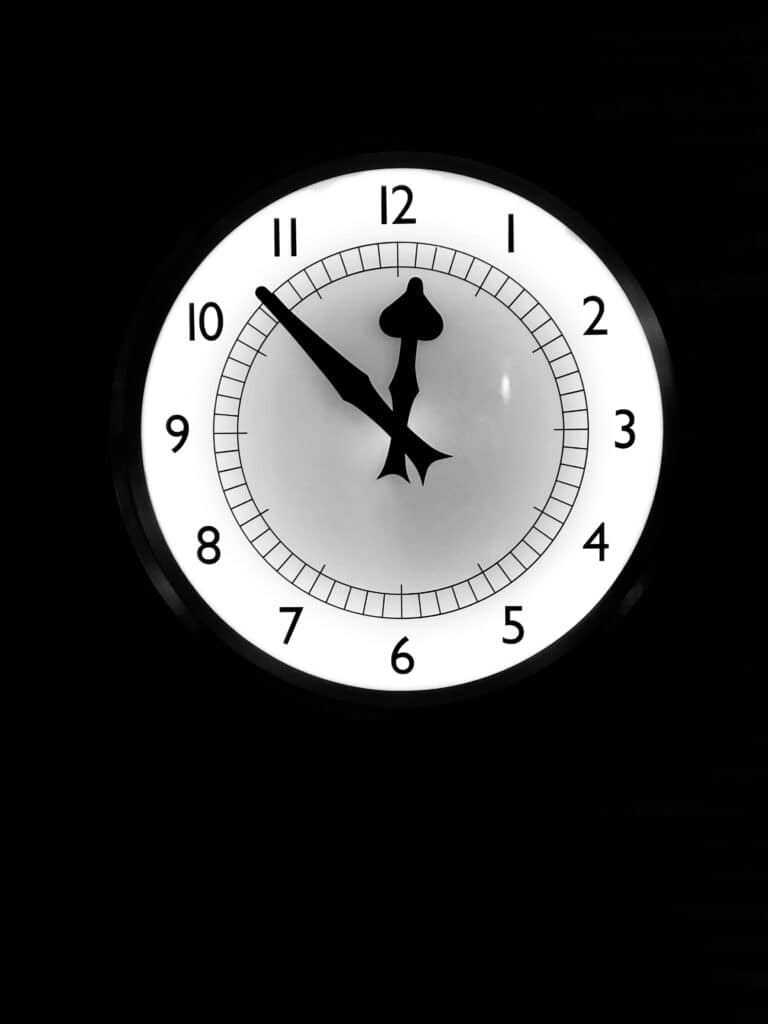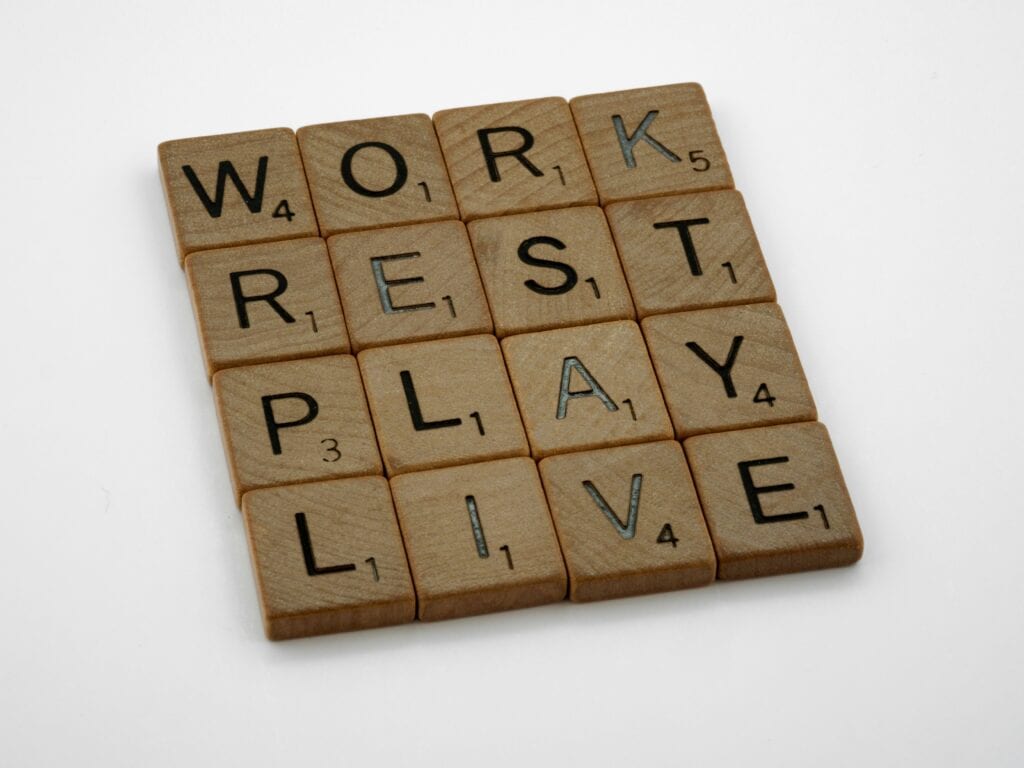
This blog is about managing the time and effort it takes to start and run a glamping campsite. The 4-Hour Workweek by Timothy Ferriss offers a ton of information about working smarter and not harder.
Here’s how short-term rental hosts can apply what he teaches and find better work-life balance.
Death and Taxes

We don’t regret putting money, time and energy into getting our glamping campsite off the ground. Being a project we’re so passionate about, it’s easy to lose track of all that has been invested so far.
But reviewing the final spreadsheet with our accountant this year was pretty eye opening. Apart from the money spent (installing eco-friendly bathroom and shower facilities is expensive!) the number of miles driven was through the roof.
Every trip to and from the land, to and from various stores to pick up materials, added up. More important than wear and tear on the truck, all those trips were a record of how we were spending our most important resource.
Time.

A walk on the beach
How do you have both? That’s the question I was asking during a quick vacation not long ago. Wanting to get away before the glamping campsite season began, a few days at the ocean were a great perspective gainer. Running a glamping campsite that people love is amazing, but time at the ocean is great too!
Our family is extremely close but we are spread out geographically. This makes finding time for what’s most important even tougher. Spending quality time together requires more travel. As far as the campsite goes, it would be great if we all lived close by and worked on this project together, but that isn’t the case right now.

Rethinking time
There are so many great things going on, but only so many hours in the day and years in the tank.
Being able to build a cabin cluster and to develop a private park has been a blessing. We’re glad we’ve done the bulk of all the work ourselves up to this point, to know what it involves and to be hands on when setting the stage for an amazing visitor experience.
But if we want to have enough time to give in all areas that are important, we have no choice but to work smarter, not harder.
That’s where The 4-Hour Workweek comes in.
The 4-Hour Workweek
The 4-Hour Workweek is a book by Timothy Ferriss that was first published in 2007. It questions the life plan of working grueling hours, taking very few vacations for decades, and saving money in order to relax after retirement. It spent four years on the bestseller list, has been translated into 40 languages, and sold around 2.1 million copies.
If you’re in the short-term rental business, you’re probably already questioning this life plan. So how else can you apply what Ferriss teaches?

Time and mobility
This book is about changing the way we look at how we live and work. It’s about the importance of changing old assumptions.
The New Rich (NR) talked about in Ferriss’s book use a different kind of currencies – time and mobility – so that they can design the lifestyle that they want. Income is necessary only to the extent that it supports these two things.
There are a ton of factors that go into being part of the short-term hosting world. But thinking about how something could affect available time and mobility could be a very useful step in the process.
Interesting to think about.
Location independence

Ferriss makes the point that ventures should be doable from anywhere and be location independent. In some ways that ship has already sailed for us – our cabin cluster and park are located on property that has been in the family since the 1800s.
But there are always adjustments that can be made to free up time and give more mobility.
For one thing, we’re at a point when hiring the right people to help out is making a lot of sense. Ferriss’s DEAL approach has been a big help when thinking about next steps.
Here’s the DEAL – Definition/Elimination/Automation/Liberation
Definition
Step one is to define dreams to chase- with timelines and written steps.
Ask:
What would excite me?
And apply timelines to these exciting dreams (called dreamlining).
Part of this process is to calculate required monthly income for living this dream (by adding the monthly cost of reaching these goals to 1.3 times monthly expenses).
I can quit my job and be a full-time host when I…

Elimination
Eliminate inefficiencies by following Parkinson’s Law and Pareto’s Law (the 80/20 rule).
Parkinson’s Law – a task will swell in importance and complexity in relation to time allotted to it. In other words, the longer we have to accomplish a task, the longer it will take and the harder it seems.
The trick is to set specific and short deadlines. Hosting is great practice for this, with built in deadlines lining up with the arriving and departing of guests.
Large tasks can be broken into smaller pieces, with swift deadlines for each step.
Pareto’s Law (the 80/20 rule) -in short, this is the concept that 80 percent of outcomes come from 20 percent of all inputs. In business, a goal would be to identify the productive actions and make them the priority.
A good example of this could be trying to please an unpleasable potential guest vs taking great care of a wonderful repeat visitor.
Automation
Learn to outsource – define clear rules and processes to follow before hiring anyone.

I was talking to another host recently. She suggested that when I hire a cleaner I should have them take a picture after they’re done and send it to me. At first, I thought it seemed like micromanaging. Then my friend pointed out, ‘What if a guest makes a mess and then claims they found it that way? Now you can say, my cleaner always does an excellent job. In fact, here’s a picture of the cabin right before you showed up and messed it up’.
Identify things that could be outsourced – for more free time and greater output.
For me, it’s taking my shirts to the dry cleaners. It saves time, the result is way better, and I can show up looking professional when I have to.
Eliminate first, THEN automate.
Delegation can be difficult but is worth the effort. Delegate what you can and put that time and energy toward tasks only you can do.
Liberation

In The 4-Hour Workweek, liberation means cash flow with location independence. Fewer inputs with higher outputs. Ferris recommends mini retirements – work for 2 months, retire for 1 month / repeat.
Hosting our cabin cluster is a ton of work, but so much of it is what we love doing. Mowing trails, making everything shine, chopping wood – arranging a great experience for guests who we think of as friends.
With that said, there are times that it is good to step away and experience other things with loved ones. True freedom is having the ability to choose.
To become more efficient put down your phone

It’s so easy to go down the rabbit hole of irrelevant input and communication these days. It starts innocently enough – just hopping online to see if anyone is having a birthday or if it’s going to rain in the afternoon.
Three hours later it’s ‘just one more video- they’re so short’ and you’re wondering where the day went. If time is the new currency, it is best not to waste it.
Finding the perfect work-life balance

Hosting our cabin cluster brings happiness a great deal of the time. It’s rewarding and enjoyable, but it’s also work and takes a lot of hours.
It’s important to create balance and to think about other ways we want to spend our time as well. When you look back on your life, think about how you want to remember it.
Thinking about this was a big part of why we started the cabin cluster and the park in the first place.
There’s nothing wrong with working hard. But when it comes to measuring a life well lived, the real currency is time. And time spent with family and loved ones is more valuable than gold.
To find the perfect work-life balance, the key is to work smarter, not harder.
Happy and efficient hosting!
.
Photo by Brett Jordan on Unsplash
Photo by Who’s Denilo ? on Unsplash
Photo by Eric Rothermel on Unsplash
Photo by Nathan Dumlao on Unsplash
